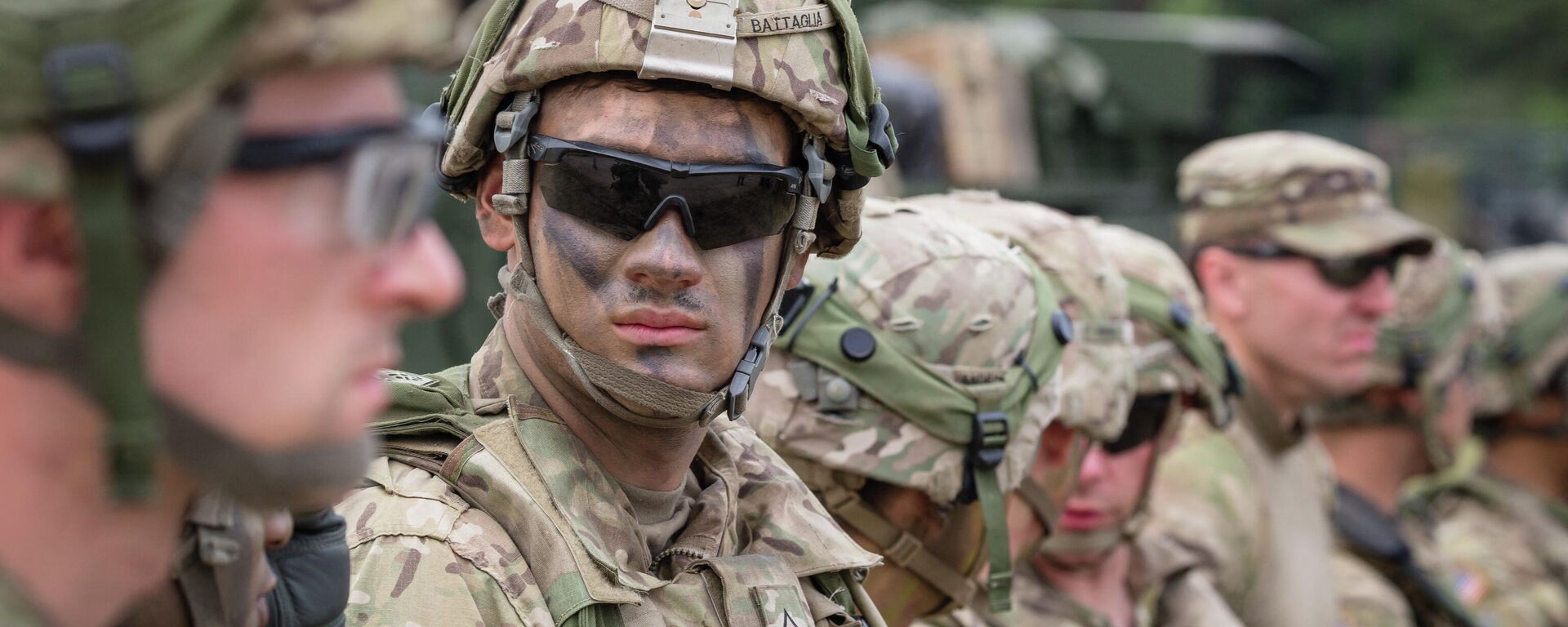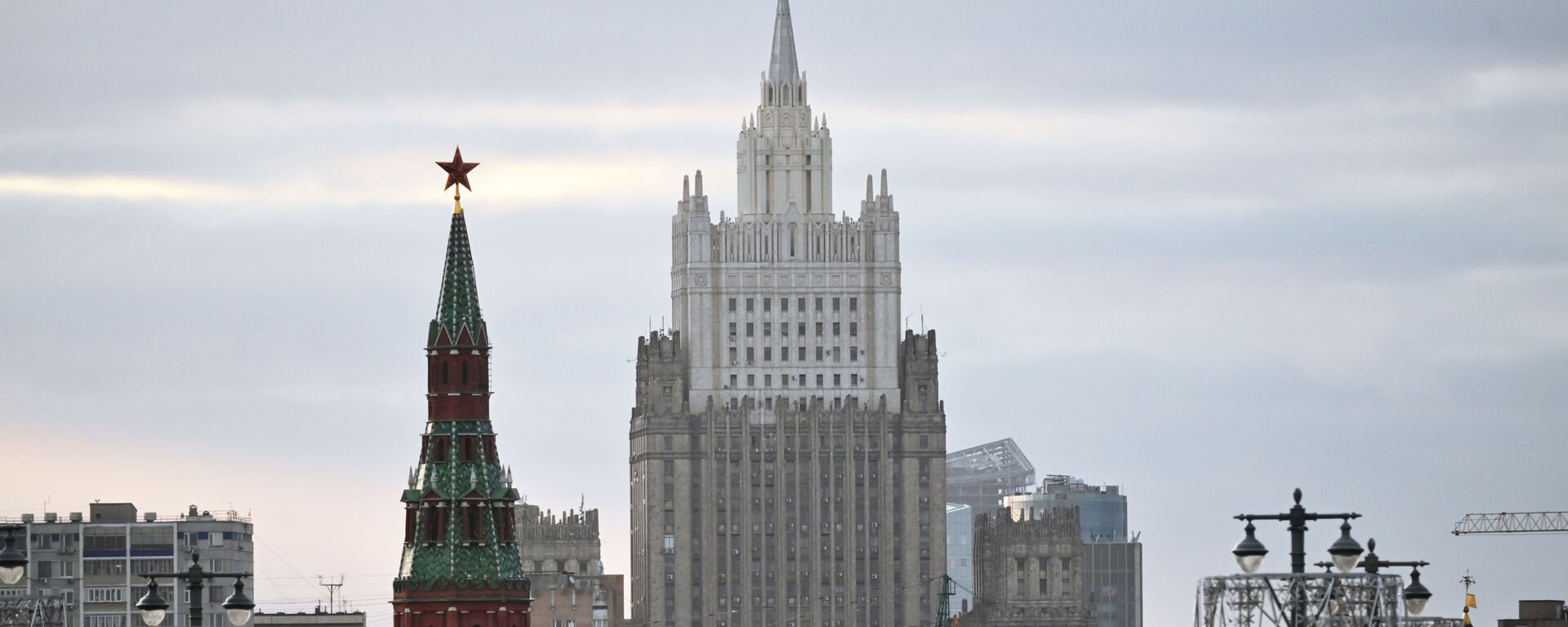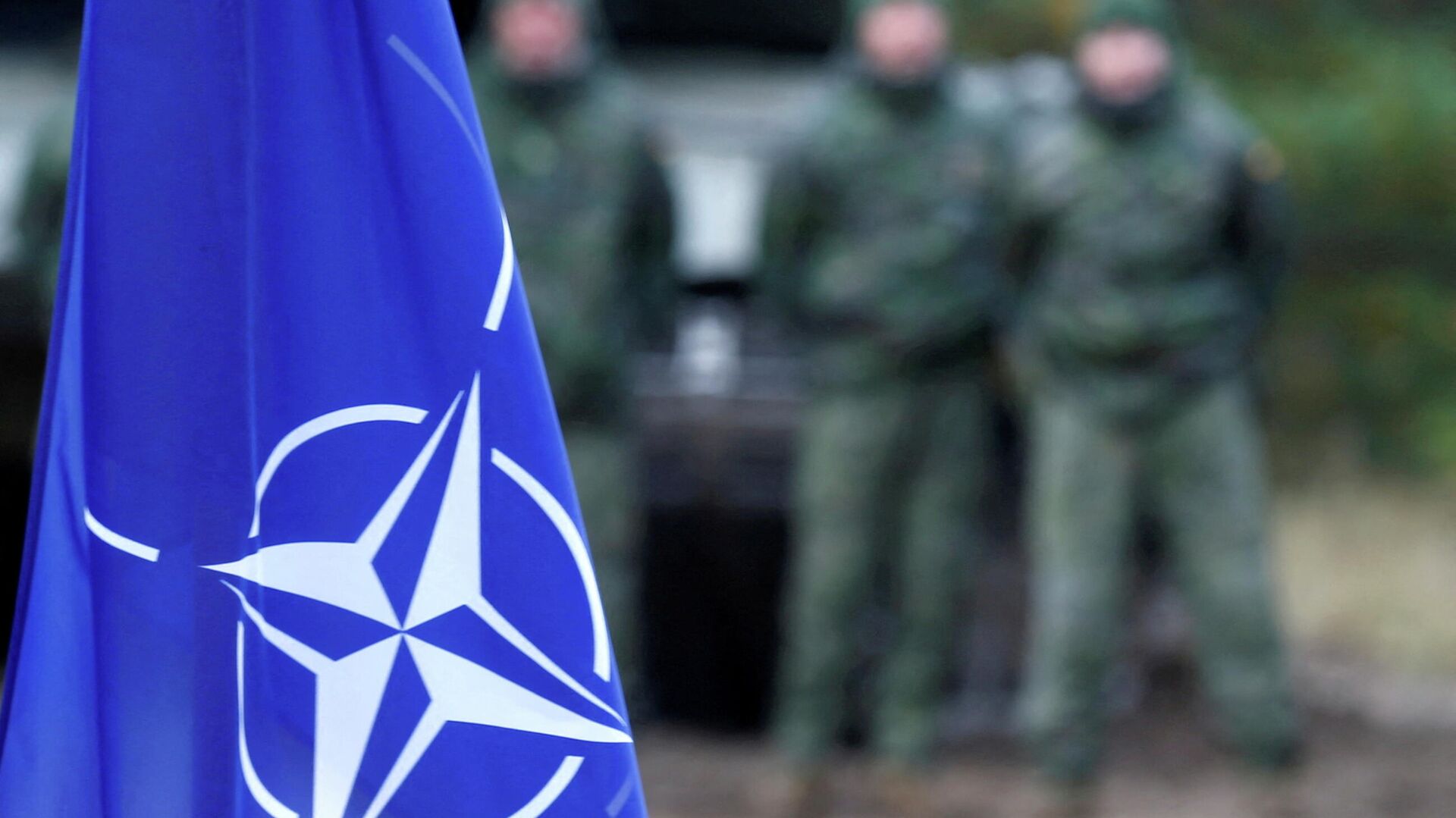https://sputnikglobe.com/20220219/1991-doc-proves-west-did-commit-to-non-expansion-of-nato-eastwards-broke-the-promise--report-1093161024.html
1991 Doc Proves the West Did Commit to Non-Expansion of NATO Eastwards, Broke the Promise — Report
1991 Doc Proves the West Did Commit to Non-Expansion of NATO Eastwards, Broke the Promise — Report
Sputnik International
The controversy over NATO moving closer to Russia lies at the core of tensions between Moscow and the West. The document reportedly mentions the “2+4” talks... 19.02.2022, Sputnik International
2022-02-19T01:56+0000
2022-02-19T01:56+0000
2023-01-08T16:49+0000
der spiegel
nato expansion
russia
german reunification
talks
security guarantees
vladimir putin
russia-nato row on european security
nato
https://cdn1.img.sputnikglobe.com/img/07e6/01/18/1092488122_0:295:2597:1755_1920x0_80_0_0_fa1bac6d508d68afb5d60a6623de168a.jpg
A formerly classified 1991 document retrieved from the British national archive shows Western states did commit to the non-expansion of NATO eastward, Germany’s Spiegel reports.The document depicts the talks between high-ranking officials from the United States, the UK, France, and the Federal Republic of Germany (FRG) in Bonne on March 6, 1991. According to the newspaper, it provides evidence that the Western states agreed that membership of Eastern European states in the alliance is unacceptable, meaning that Russia’s current grievances with NATO’s expansion eastwards are totally justified.The US’ Raymond Seitz reportedly agreed with Chrobog, saying, “We made it clear to the Soviet Union that we will not [capitalize on] the withdrawal of the Soviet troops from Eastern Europe...NATO must not expand eastwards neither officially, nor inofficially.”For years, Russia has insisted that NATO states broke their vow not to move the military alliance toward the Russian borders. What’s more, at the NATO summit in 2016, Russia was — for the first time officially — declared a direct threat to the alliance’s security.The document has surfaced just as Russia and NATO states are in a row over what constitutes European security. In late December, Moscow shared its own security guarantee proposals with NATO and the United States, which specifically prioritize non-expansion of NATO eastwards and non-deployment of offensive weapons near the Russian borders, as well as shifting alliance forces in Eastern Europe to the positions of 1997.In 1997, Russia and NATO signed the Founding Act, under which the alliance pledged to “carry out its collective defense and other missions by ensuring the necessary interoperability, integration, and capability for reinforcement rather than by additional permanent stationing of substantial combat forces.” However, three former Warsaw pact members – Hungary, Poland, and the Czech Republic – joined NATO right away in 1999, followed by Bulgaria, Romania, and Slovakia, as well as Latvia, Lithuania, Estonia, and Slovenia in 2004.Since the 1990s, that is after the end of the Cold War, NATO’s expansion has been the largest to date, both in terms of the number of newly admitted members and in terms of the alliance's influence. Now, NATO is using the Ukrainian government's provocations and accusations of an allegedly looming “invasion” as a pretext to further boost its presence around Russia.
https://sputnikglobe.com/20220212/nato-expansion-since-putins-2007-munich-speech-pushed-russia-to-edge---peskov-1092953767.html
https://sputnikglobe.com/20220217/russian-foreign-ministry-releases-response-to-us-on-security-guarantees-1093115903.html
russia
Sputnik International
feedback@sputniknews.com
+74956456601
MIA „Rossiya Segodnya“
2022
Asya Geydarova
https://cdn1.img.sputnikglobe.com/img/07e5/09/0b/1088970360_0:0:1003:1003_100x100_80_0_0_14c2d6564e4700bfb043d8338b3ba245.jpg
Asya Geydarova
https://cdn1.img.sputnikglobe.com/img/07e5/09/0b/1088970360_0:0:1003:1003_100x100_80_0_0_14c2d6564e4700bfb043d8338b3ba245.jpg
News
en_EN
Sputnik International
feedback@sputniknews.com
+74956456601
MIA „Rossiya Segodnya“
Sputnik International
feedback@sputniknews.com
+74956456601
MIA „Rossiya Segodnya“
Asya Geydarova
https://cdn1.img.sputnikglobe.com/img/07e5/09/0b/1088970360_0:0:1003:1003_100x100_80_0_0_14c2d6564e4700bfb043d8338b3ba245.jpg
der spiegel, nato expansion, russia, german reunification, talks, security guarantees, vladimir putin, nato
der spiegel, nato expansion, russia, german reunification, talks, security guarantees, vladimir putin, nato
1991 Doc Proves the West Did Commit to Non-Expansion of NATO Eastwards, Broke the Promise — Report
01:56 GMT 19.02.2022 (Updated: 16:49 GMT 08.01.2023) The controversy over NATO moving closer to Russia lies at the core of tensions between Moscow and the West. The document reportedly mentions the “2+4” talks, during which Western states and the Soviet Union agreed on the reunification of Germany, and Western countries reportedly promised the alliance would not extend “one inch to the east.”
A formerly classified 1991 document retrieved from the British national archive shows Western states did commit to the non-expansion of NATO eastward, Germany’s Spiegel reports.
The document depicts the talks between high-ranking officials from the United States, the UK, France, and the Federal Republic of Germany (FRG) in Bonne on March 6, 1991. According to the newspaper, it provides evidence that the Western states agreed that membership of Eastern European states in the alliance
is unacceptable, meaning that Russia’s current grievances with NATO’s expansion eastwards are totally justified.
“We made it clear during the talks NATO will not expand beyond the Elbe. Therefore, we cannot [offer] membership in NATO to Poland and others,” FRG’s foreign ministry spokesman Jürgen Chrobog reportedly said in a statement cited by Spiegel.
The US’ Raymond Seitz reportedly agreed with Chrobog, saying, “We made it clear to the Soviet Union that we will not [capitalize on] the withdrawal of the Soviet troops from Eastern Europe...NATO must not expand eastwards neither officially, nor inofficially.”

12 February 2022, 01:45 GMT
For years, Russia has insisted that NATO states broke their vow not to move the military alliance toward the Russian borders. What’s more, at the NATO summit in 2016, Russia was — for the first time officially — declared a direct threat to the alliance’s security.
Russian Foreign Minister Sergey Lavrov said back in 2018 that the so-called “gentlemen’s agreement” with the USSR was “trampled” by Western colleagues. Russian President Vladimir Putin also said that the agreement was not reached on paper, which was a mistake on the part of ex-leader Michail Gorbachev, who, himself, claims no such accord ever existed.
The document has surfaced just as Russia and NATO states are in a row over what constitutes European security. In late December, Moscow shared its own security guarantee proposals with NATO and the United States, which specifically prioritize non-expansion of NATO eastwards and non-deployment of offensive weapons near the Russian borders, as well as
shifting alliance forces in Eastern Europe to the positions of 1997.
The Russian deputy foreign minister said on Friday that not just empty promises, but legally binding guarantees are needed from Western states that their security will not be based on another state’s insecurity, “specifically, Russia’s.” Speaking of Russia's security guarantees in Europe, President Putin noted that the West is “not yet inclined to adequately perceive the three core elements of our initiative.”

17 February 2022, 14:06 GMT
In 1997, Russia and NATO signed the Founding Act, under which the alliance pledged to “carry out its collective defense and other missions by ensuring the necessary interoperability, integration, and capability for reinforcement rather than by additional permanent stationing of substantial combat forces.” However, three former Warsaw pact members – Hungary, Poland, and the Czech Republic – joined NATO right away in 1999, followed by Bulgaria, Romania, and Slovakia, as well as Latvia, Lithuania, Estonia, and Slovenia in 2004.
Since the 1990s, that is after the end of the Cold War, NATO’s expansion
has been the largest to date, both in terms of the number of newly admitted members and in terms of the alliance's influence. Now, NATO is using the
Ukrainian government's provocations and accusations of an
allegedly looming “invasion” as a pretext to further boost its presence around Russia.





